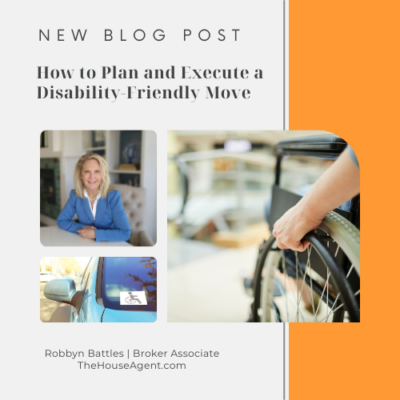 Navigating a move with confidence is crucial, especially for individuals with disabilities. This article provides essential tips to ensure a smooth and stress-free relocation process. It covers the importance of emergency preparedness, familiarization with local resources, and practical advice on packing and managing finances. Each section aims to empower you with the knowledge to handle your move efficiently and maintain your independence.
Navigating a move with confidence is crucial, especially for individuals with disabilities. This article provides essential tips to ensure a smooth and stress-free relocation process. It covers the importance of emergency preparedness, familiarization with local resources, and practical advice on packing and managing finances. Each section aims to empower you with the knowledge to handle your move efficiently and maintain your independence.
Prioritize Emergency Preparedness
Maintaining a comprehensive list of emergency contacts is essential during the upheaval of a move. Include in this list your family, friends, healthcare providers, and anyone else who may be instrumental in an emergency. Ensure that these key contacts are informed of your moving dates and can be reached promptly should a crisis arise. This proactive approach will ensure you have immediate access to support, granting you peace of mind amid the chaos of relocation.
Incorporate Regular Breaks into Your Moving Schedule
The combined physical and mental toll of moving, particularly for individuals with disabilities, can quickly lead to exhaustion. It’s crucial to intersperse your schedule with regular breaks to mitigate stress and avoid burnout. Use these pauses effectively to rest, hydrate, or have a snack, ensuring you maintain your stamina throughout the moving process. Strategically timed breaks will help you manage your energy and tackle the move with renewed focus each time.
Seamlessly Transition Your Business to a New State
To move your business to another state, you’ll need to research state laws, register your business in the new state, update licenses and permits, notify stakeholders, and carefully plan the logistics of the move. Navigating this transition efficiently ensures your business operates smoothly in its new location. When relocating your business, it’s vital to understand how to transfer LLC to another state to maintain legal compliance. To move your LLC, you must first secure a Certificate of Good Standing from your current state, then apply for domestication in your new state, and finally dissolve the entity in the old state.
Leverage Adaptive Packing Tools
Packing is a strenuous task during a move, but utilizing adaptive packing tools can alleviate some of the physical demands. Opt for lightweight containers, ergonomic handling equipment, and specialized tools designed for those with mobility or strength limitations. These adaptations not only minimize physical strain but also enhance packing efficiency. Label your boxes clearly and keep necessities within easy reach to streamline unpacking at your new home.
Build a Support Network Before You Move
Establish a solid support network that includes family, friends, and community members to aid you before and during your move. This network can assist with practical tasks like packing and transportation and provide emotional support. Upon relocating, extend your network to include neighbors and local service providers to enhance your support system. A robust network eases your transition and reduces stress during the move.
Manage Your Finances During the Move
Effective financial planning is essential during the moving process to cope with its inherent costs. Draft a comprehensive budget that includes all moving-related expenses such as supplies, transportation, and any adjustments needed for your disability. It’s also wise to establish a reserve fund for any unexpected expenses that may occur. Through meticulous financial management and preemptive planning, you can ease the monetary stresses of moving and establish a solid foundation in your new home.
Familiarize Yourself with Local Resources
Before settling into your new environment, make it a priority to explore the local amenities and services. Identify healthcare facilities, pharmacies, and other essential services tailored to your specific requirements. Investigate accessible transportation options to guarantee your independence in navigating your new surroundings. Establish connections with local support groups and disability advocacy organizations to ease your transition and enrich your community engagement.
Successfully relocating involves careful planning and utilization of available resources to address the unique challenges faced by people with disabilities. By prioritizing emergency preparedness, leveraging adaptive tools, and building a strong support network, you can navigate the complexities of moving with greater ease. Establishing a detailed financial plan further secures your transition into a new home and business environment. These strategies ensure that you can move confidently, backed by a well-prepared approach that considers all aspects of your needs.
Experience unmatched expertise and personalized service with Robbyn Battles, your go-to real estate agent with over 30 years of success in the industry.
If you enjoyed the article above provided by Patrick Young at Able USA be sure to check out more content at the Able USA Blog.

